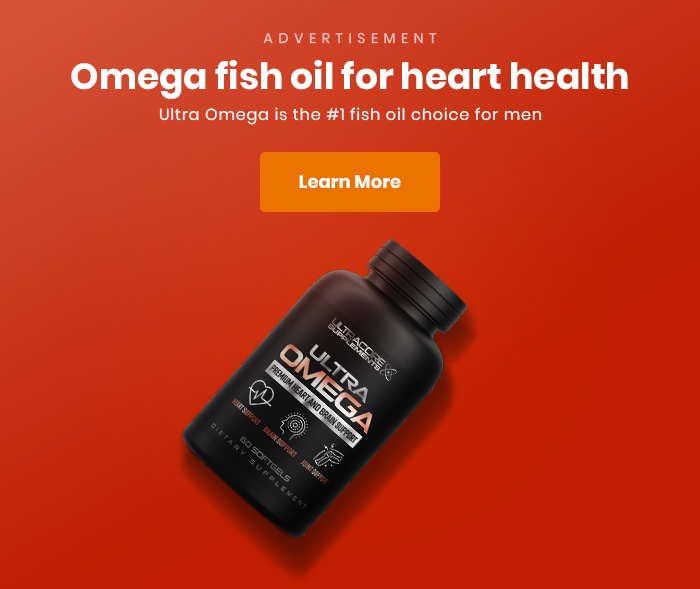Many of us are aware that high cholesterol is not a good thing. So why don’t we pay more attention to it? The answer to that question is because of a lack of knowledge. People are not educated enough on the topic of cholesterol and therefore consider high cholesterol a minor nuisance. If you are unaware of the problem, you cannot fix the problem. It is beneficial to understand how cholesterol works and what it is.
What is Cholesterol?
Cholesterol is white, waxy, and an insoluble substance made by your body. It is a sterol molecule that is mainly produced by your liver, but most of the cells in your body also produce cholesterol. It helps the body’s metabolic processes, such as the production of hormones, such as testosterone and estrogen, vitamin D, and bile. Your body requires a small amount of blood cholesterol to help process these substances into the body.
Cholesterol is a lipid that is a molecule carried in your body through two carrier systems called low-density lipoprotein (LDL) and High-Density Lipoprotein (HDL). LDL is known as bad cholesterol and can cause clogging to the arteries when the level of it is too high in your bloodstream. HDL is known as good cholesterol, as it helps remove the extra cholesterol from your cells and arteries. The differentiating factor between the two is determined by where the cholesterol is located in your body. The higher your LDL, the higher your chances are of having a heart attack or stroke.
Reading Your Lipid Panel
A lipid panel is a standard way for healthcare professionals to measure how much you are at risk for heart disease. Risk factors such as your age, existing conditions, and family history will affect each lipid panel. The three things to note from your lipid panel are the levels from your triglyceride, LDL, and non-HDL. If you have high triglycerides, LDL, and non-HDL, you are at risk for heart disease. Low HDL levels and high triglyceride levels are an indication of insulin resistance.
Here are some “normal” readings you can expect to see.
- Total cholesterol shows <200mg/dl
- LDL shows <130mg/dl or <100mg/dl
- HDL shows >39mg/dl for men
- HDL shows >49mg/dl for women
- Triglycerides show <150mg/dl
- Non-HDL shows a value less than or equal to 30md/dl more than your LDL value.
Healthy ranges will be influenced by your risk factors. Insulin resistance is a big side effect of high cholesterol but is not seen as a common risk factor. However, insulin resistance can affect your LDL results by inaccurately representing the number of LDL particles in your body. This can cause you to underestimate the risk you are at. Insulin is also a risk factor for type 2 diabetes, which could also lead to heart disease.
Always remember to monitor your LDL and non-HDL levels. You should also pay attention to your triglycerides level, but this is not your primary concern. It is essential to take both your LDL level and your non-HDL level into consideration. Only reading your LDL level will not give you an accurate estimate of where your cholesterol levels are at.

What To Do If You Have Bad Cholesterol
If your lipid panel provides you with concerning results, the next step to take is to consult with your healthcare provider. You can arrange treatment, as well as get an estimate on your risk for heart disease. The health care provider will consider your age, blood pressure, family history, and other risk factors. Other tests will be done if you have a high number for your LDL, as you may be at risk of a stroke, heart disease, and heart attacks. A coronary calcium scoring is a test that will be conducted for this. The test conducted via low-dose computed tomography (CT) is used to scan your body to evaluate the level of calcium surrounding your heart and arteries.
Recommended Lifestyle Changes
Changing your lifestyle is something that your healthcare provider will recommend if you suffer from high cholesterol. Here are some lifestyle changes that have been recommended by the American College of Cardiology (CAC) and The American Heart Association.
Your diet should contain a large consumption of fruits and vegetables, nuts, poultry, legumes, low-fat dairy products that promote heart health, and fish. You should consume a low amount of sweets, sugar-sweetened beverages, red meat, saturated fats, and trans-fats. You can refer to the Mediterranean or the DASH diet to help implement these changes in your diet.
Your salt intake needs to be reduced. Be sure not to consume more than 2,400mg of sodium per day. This is especially important for people who suffer from hypertension. Exercise 3-4 times a week for at least 40 minutes per session.
Medication For Cholesterol
Alongside your lifestyle changes, you also need to treat your bad cholesterol. Medication for cholesterol can be beneficial. Statins are usually the medication you should take. They help reduce the amount of cholesterol in your body by decreasing your ability to produce cholesterol in the bloodstream. Statins have been proven to reduce the risks of fatal heart attacks, although the drug has been criticized.
For some, getting rid of bad cholesterol will not be a significant difficulty. While for others, it is a big adjustment. Changing your diet, taking medication, and understanding what cholesterol is can improve your cholesterol levels and ultimately save your life.











